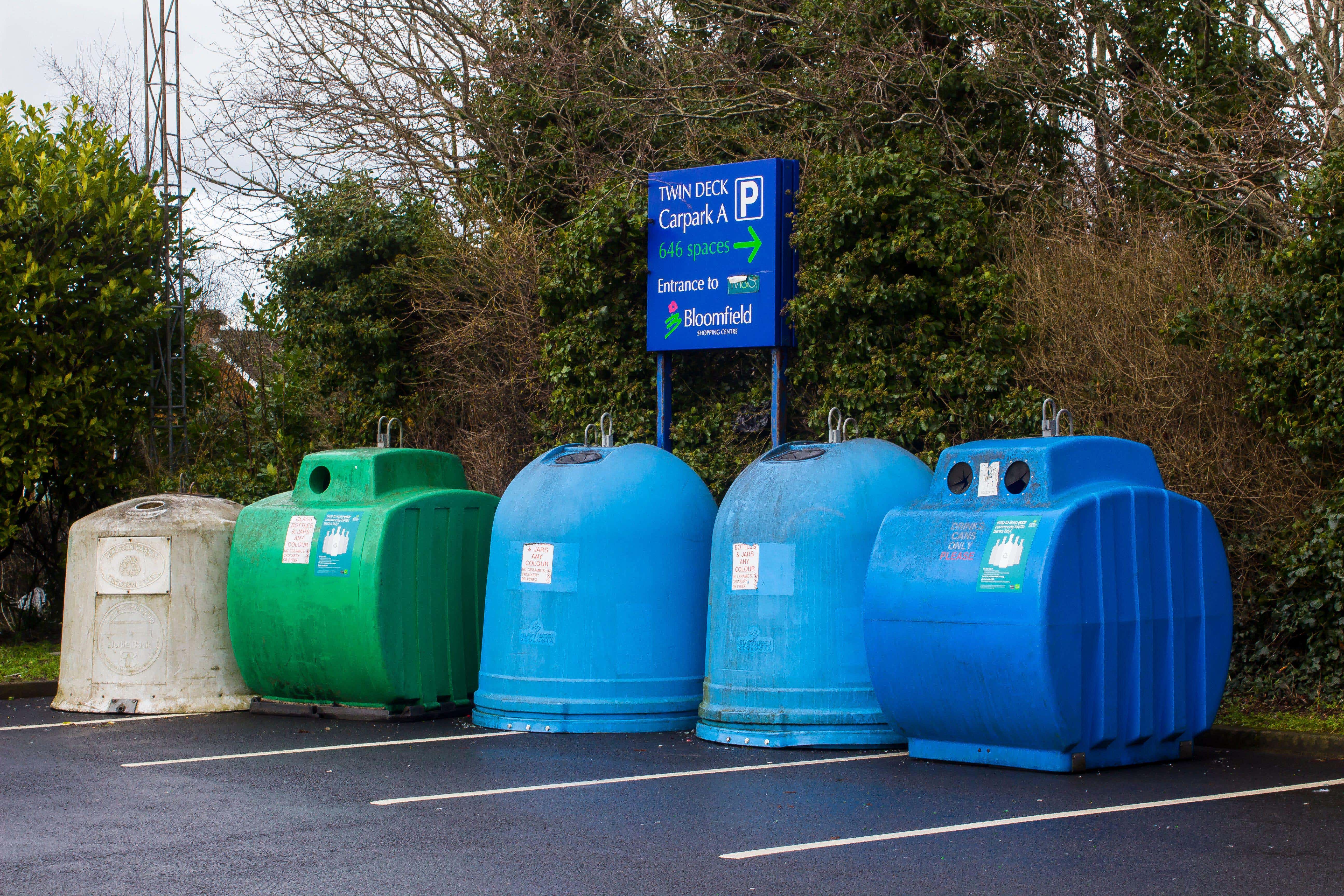Keeping recyclable waste separate ‘vital’ to boosting NI recycling rates
People have been urged to properly sort their recyclable waste.

Your favourite Christmas drinks bottles could be back on supermarket shelves within weeks of bring dropped off at a recycling bank – and yet Northern Ireland is exporting and importing recyclable waste.
People have now been urged to carefully sort their recyclable waste to ensure maximum efficiency.
Nicola Carruthers from Keep Recycling Local said that when glass is kept separate, there is a “completely circular economy” in Northern Ireland and glass can be recycled indefinitely.
She said it means a bottle of Baileys or Shloer can be drunk, put in a bottle bank, recycled by local companies Enva in Toomebridge and Encirc in Derrylin into new bottles, refilled and back on supermarket shelves within weeks – if waste is separated.
But she said Northern Ireland currently exports 91,000 tonnes of recyclable waste and also has to import raw materials and recycled materials from other countries, which she called a waste of money and bad for the environment.
The appeal comes at the busiest time of the year for waste, with around a 30% increase over Christmas.
Speaking to the PA news agency at the Bryson Recycling plant at Mullusk, Ms Carruthers said the site receives another 750,000 bottles over the Christmas period.
The festive season also sees a billion Christmas cards and envelopes thrown away across the UK, as well as enough silver foil to cover a quarter of Northern Ireland.
Ms Carruthers said Northern Ireland has a target of 70% to meet by 2030 and is “still some way off that”.
“Generally the recyclables are increasing and the amount going to landfill is thankfully reducing year on year, which is a good thing because Northern Ireland, unless we make changes, will run out of landfill before 2030,” she said.
The latest waste statistics released by the Department of Agriculture, Environment and Rural Affairs (Daera) in November showed a clear reduction in waste going to landfill and increase in waste going for recycling.
Some 971,936 tonnes of waste were collected during 2022/23 – 6.1% less than the amount collected in 2021/22.
There are still too many people about who think there's no point in putting things into the blue bin or separating out the waste because it all goes to the same place. It doesn't
The landfill rate for waste collected by councils was 23.1% in 2022/23, a fall from 74% in 2006/07 and 24.9% in 2021/22.
Household waste accounted for 87.1% of all local authority-collected waste during 2022/23 and the recycling rate for household waste was 50.7%, while the landfill rate for household waste was 22.4%.
Ms Carruthers said people are more likely to sort waste for recycling when they know what will happen to it.
“There are still too many people about who think there’s no point in putting things into the blue bin or separating out the waste because it all goes to the same place. It doesn’t,” she said, referencing website myrecyclingni.com, which allows people to see exactly what happens to their waste in each council area.
She added: “In Northern Ireland every year we export over 91,000 tons of recyclables which could be staying in Northern Ireland and used by Northern Ireland companies because it’s ludicrous that Northern Ireland companies are having to import recyclables from abroad, and at the same time we’re exporting 91,000 tones. It’s crazy.”
Ms Carruthers said the Mallusk plant receives bottles, plastic, paper and cardboard already separated.
Our big message to people is to keep your glass separate or take it to the bottle bank, because that means it can be used by the companies
“That means all of that can be reused, a lot of it locally. 100% of the glass that comes in here separated stays in Northern Ireland, whereas if people are putting their glass into a bin that also has cardboard, paper, cans, etc, none of that glass can be recycled in Northern Ireland. That all has to get shipped abroad and that’s because of the contamination that the glass has on the paper and the cans have on the glass, etc.
“Our big message to people is to keep your glass separate or take it to the bottle bank, because that means it can be used by the companies.”
There is no one system for collecting recycling across Northern Ireland’s 11 councils, an issue Keep Recycling Local hopes will be consulted on shortly.
Ms Carruthers added: “Wales are the third biggest recyclers in the world because they have one system across the board and they require things to be separated out, so it shows you that a country can do it and it can be done very well.”
Bookmark popover
Removed from bookmarks